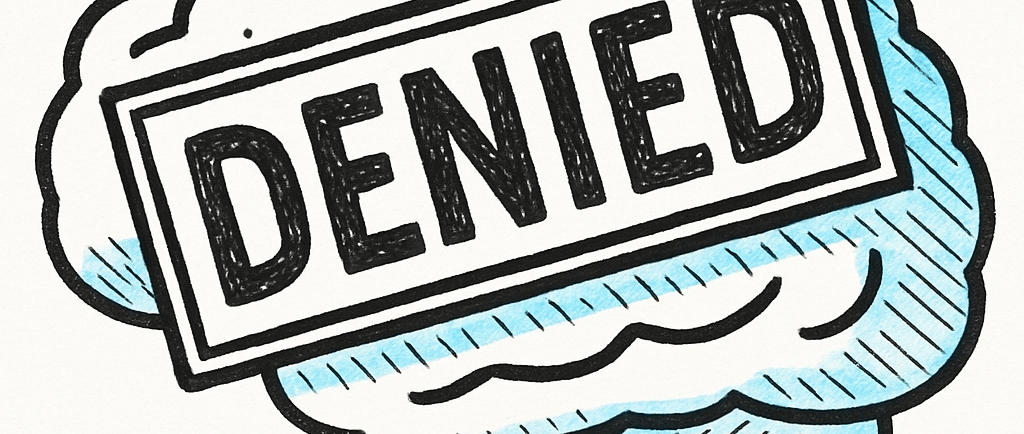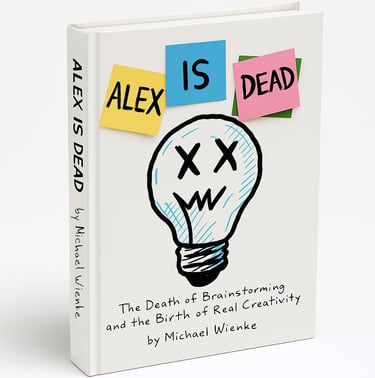The Bias We Don’t Admit: Why We Reject Creative Ideas
Blog post description.
Michael Wienke
9/10/20253 min read


The Bias We Don’t Admit: Why We Reject Creative Ideas
Everyone says they want creativity. It’s right there in the job postings. It’s framed on the office wall next to the mission statement. “Innovation” gets repeated so many times in earnings calls it starts to sound like background noise.
But watch what happens when a truly new idea shows up. The energy in the room changes. People smile, nod politely, and then begin circling it with questions. Is this practical? Is it safe? Will it scale? By the end of the meeting, the bold idea has been neatly folded back into the stack of safe ones.
We don’t reject creativity because we hate it. We reject it because it makes us uneasy.
Why Novelty Feels Like Risk
The research is blunt about this: when people feel uncertain, they gravitate toward safe, practical options over bold, creative ones. Novelty brings questions. Questions bring risk. And risk sets off alarms in the part of our brain that wants tomorrow to look an awful lot like today.
That’s the paradox. The more original an idea is, the more it triggers the very instincts that push us away from it.
I’ve Watched It Happen
I’ve sat in those rooms. The “provocative” idea gets oohs and ahhs in the first five minutes. Everyone says it’s exciting, fresh, exactly what the brand needs. But by the end of the conversation, it’s been gently nudged aside in favor of the safer option.
No one in that room thought of themselves as anti-creativity. They thought they were protecting the company. Protecting their jobs. Protecting certainty.
The Stories We Tell
Of course, we rarely admit that out loud. Instead, we dress our hesitation in business language. “The market isn’t ready.” “It’s not aligned with strategy.” “It’s too risky for this quarter.” Sometimes those reasons are valid. Often they’re just ways of soothing the discomfort that comes with novelty.
We don’t say, this idea scares me. We say, this idea isn’t feasible.
What Teams Can Learn
The point isn’t to shame people for choosing safe ideas. The point is to see the bias for what it is. Once you know it’s there, you can design around it.
Give fragile ideas a little more time before you judge them. Create moments where leaders back something that feels uncomfortable, just to show it’s allowed. Or simply name the tension out loud: “We’re leaning safe because this feels risky. But maybe that’s a sign it’s worth exploring.”
Rethinking What Creativity Feels Like
We like to imagine creativity as thrilling. Fireworks. A rush of inspiration. The “eureka” moment where everything suddenly clicks.
But more often, it’s the opposite. It feels awkward. Unsettling. Sometimes even a little wrong. The room goes quiet. People shift in their chairs. You wonder if you’ve said something foolish.
That discomfort isn’t a sign the idea has failed. It’s the texture of newness. Ideas that bend the rules rarely slide neatly into place. They scrape on the way in. They ask us to consider futures we haven’t rehearsed yet.
If an idea feels instantly comfortable, chances are it isn’t that creative in the first place. It’s just a safer version of what you already know. Real creativity leaves you with questions, not answers. And sitting in that unease is where the work actually begins.
Owning the Bias
The bias against creativity doesn’t mean we’re hypocrites. It means we’re human. We crave certainty, and creativity doesn’t play by certainty’s rules.
But the second we name the bias, we get some power back. We can stop confusing our discomfort with a death sentence for the idea. We can give creativity a chance to breathe instead of smothering it the moment it feels risky.
Because if all we ever choose are the ideas that feel safe, we’re not choosing creativity at all. We’re choosing repetition.
Enjoy what you just read?


If you enjoyed this, then you'll love the rest of Alex is Dead. Download the complete book today in PDF or EPUB.
Connect
Stay updated with our latest news.
Follow
Join our mailing list
info@alexisdead.com
314-596-2486
© 2025. All rights reserved.